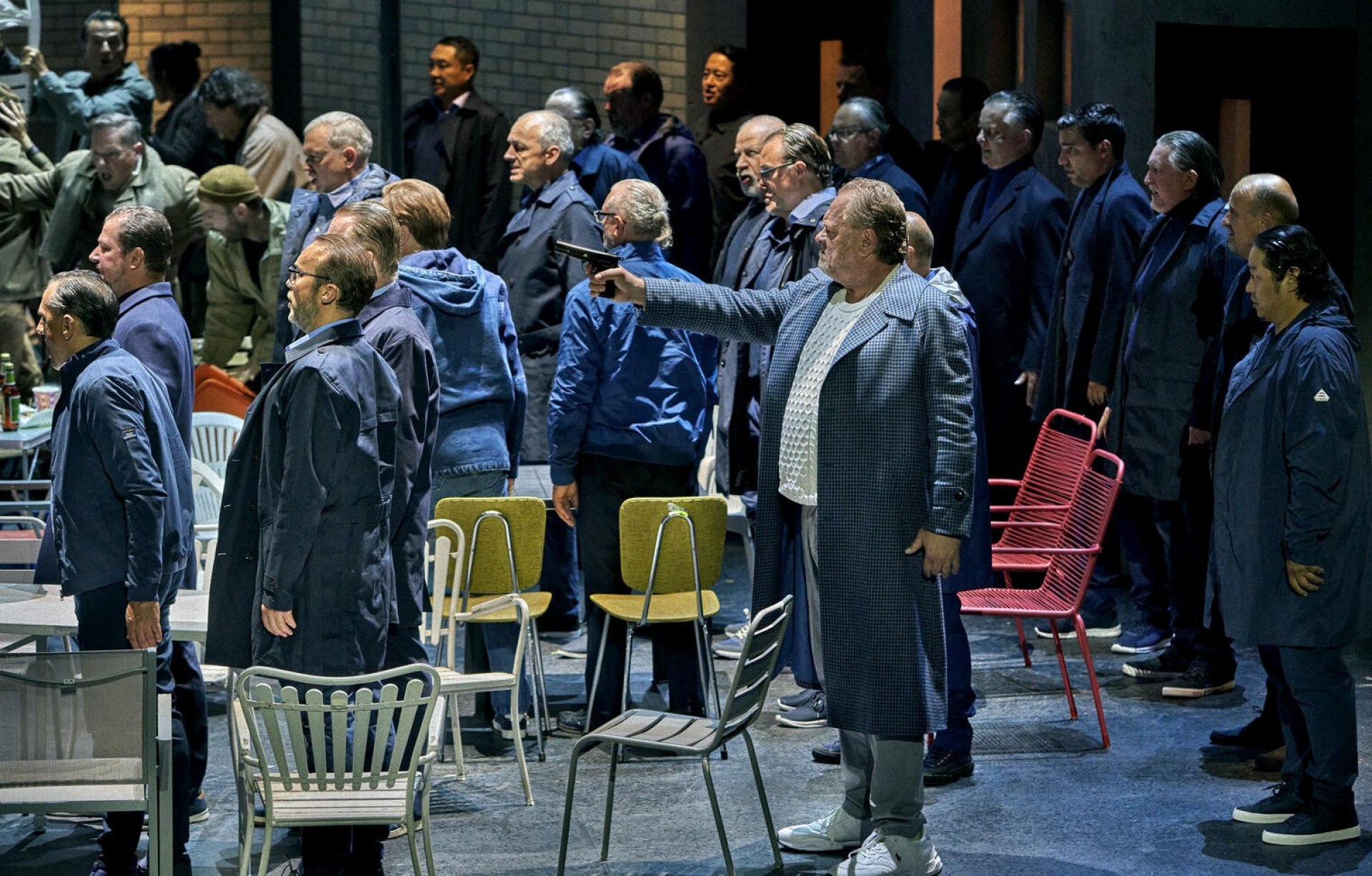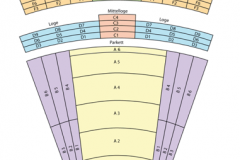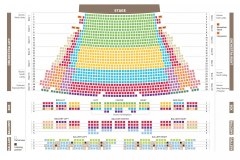The Flying Dutchman Bayreuth Festival 2026
Mo | Tu | We | Th | Fr | Sa | Su |
The Flying Dutchman
Romantic opera in three acts
Libretto: Richard Wagner
Original language: German
World premiere: 2 January 1843, Dresden
The Flying Dutchman 2026
Tcherniakov’s production of The Flying Dutchman is a radical, psychologically intense interpretation, featuring clear visual symbolism, strong female characters, and a modern thriller scenario.
Synopsis
Place: On the coast of Norway
Act 1
On his homeward journey, the sea captain Daland is compelled by stormy weather to seek a port of refuge near Sandwike in southern Norway. He leaves the helmsman on watch and he and the sailors retire. (Song of the helmsman: "Mit Gewitter und Sturm aus fernem Meer" – "With tempest and storm on distant seas.") The helmsman falls asleep. A ghostly vessel appearing astern is dashed against Daland's vessel by the sea and the grappling irons hold the two ships together. Invisible hands furl the sails. A man of pale aspect, dressed in black, his face framed by a thick black beard, steps ashore. He laments his fate. (Aria: "Die Frist ist um, und abermals verstrichen sind sieben Jahr" – "The time has come and seven years have again elapsed") Because he once invoked Satan, the ghost captain is cursed to roam the sea forever without rest. An angel brought to him the terms of his redemption: Every seven years the waves will cast him upon the shore; if he can find a wife who will be true to him he will be released from his curse.
Daland wakes up and meets the stranger. The stranger hears that Daland has an unmarried daughter named Senta, and he asks for her hand in marriage, offering a chest of treasure as a gift. Tempted by gold, Daland agrees to the marriage. The southwind blows and both vessels set sail for Daland's home.
Act 2
A group of local girls are singing and spinning in Daland's house. (Spinning chorus: "Summ und brumm, du gutes Rädchen" – "Whir and whirl, good wheel") Senta, Daland's daughter, dreamily gazes upon a gorgeous picture of the legendary Dutchman that hangs from the wall; she desires to save him. Against the will of her nurse, she sings to her friends the story of the Dutchman (Ballad with the Leitmotiv), how Satan heard him swear and took him at his word. She vows to save him by her fidelity.
The huntsman Erik, Senta's former boyfriend, arrives and hears her; the girls depart, and the huntsman, who loves the maiden, warns her, telling her of his dream, in which Daland returned with a mysterious stranger, who carried her off to sea. She listens with delight, and Erik leaves in despair.
Daland arrives with the stranger; he and Senta stand gazing at each other in silence. Daland is scarcely noticed by his daughter, even when he presents his guest as her betrothed. In the following duet, which closes the act, Senta swears to be true till death.
Act 3
Later in the evening, the local girls bring Daland's men food and drink. They invite the crew of the strange vessel to join in the merry-making, but in vain. The girls retire in wonder; ghostly forms appear at work upon the vessel, and Daland's men retreat in fear.
Senta arrives, followed by Erik, who reproves her for deserting him, as she had formerly loved him and vowed constancy. When the stranger, who has been listening, hears these words, he is overwhelmed with despair, as he thinks he is now forever lost. He summons his men, tells Senta of the curse, and to the consternation of Daland and his crew declares that he is "Der fliegende Holländer."
As the Dutchman sets sail, Senta throws herself into the sea, claiming that she will be faithful to him unto death. This is his salvation. The spectral ship disappears, and Senta and the Dutchman are seen ascending to heaven.
Program and cast
Musical Direction: Oksana Lyniv
Stage Director: Dmitri Tcherniakov
Daland: Mika Kares
Senta: Asmik Grigorian (6, 18 Aug) / NN
Erik: Benjamin Bruns
The Dutchman: Nicholas Brownlee
Bayreuth Festival
The Bayreuth Festival (German: Bayreuther Festspiele) is a music festival held annually in Bayreuth, Germany, at which performances of operas by the 19th-century German composer Richard Wagner are presented. Wagner himself conceived and promoted the idea of a special festival to showcase his own works, in particular his monumental cycle Der Ring des Nibelungen and Parsifal.
Performances take place in a specially designed theatre, the Bayreuth Festspielhaus. Wagner personally supervised the design and construction of the theatre, which contained many architectural innovations to accommodate the huge orchestras for which Wagner wrote as well as the composer's particular vision about the staging of his works. The Festival has become a pilgrimage destination for Wagner enthusiasts, who often must wait years to obtain tickets.

 EN
EN DE
DE IT
IT FR
FR ES
ES RU
RU JP
JP RO
RO
 Seating plan
Seating plan 
